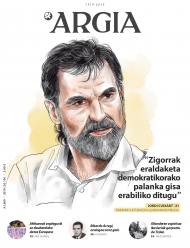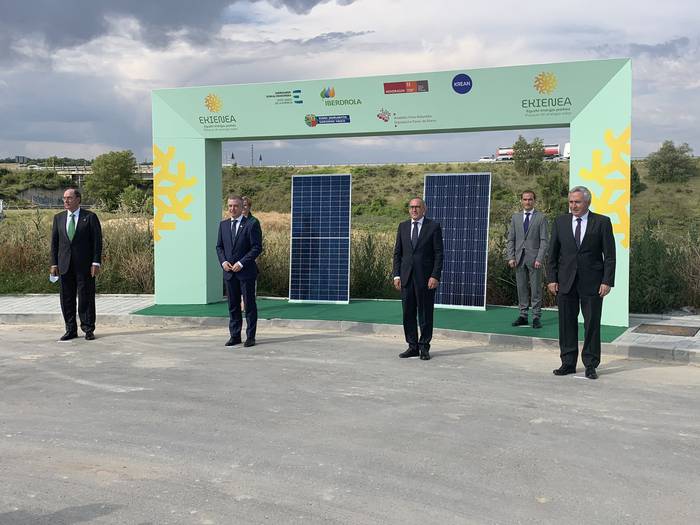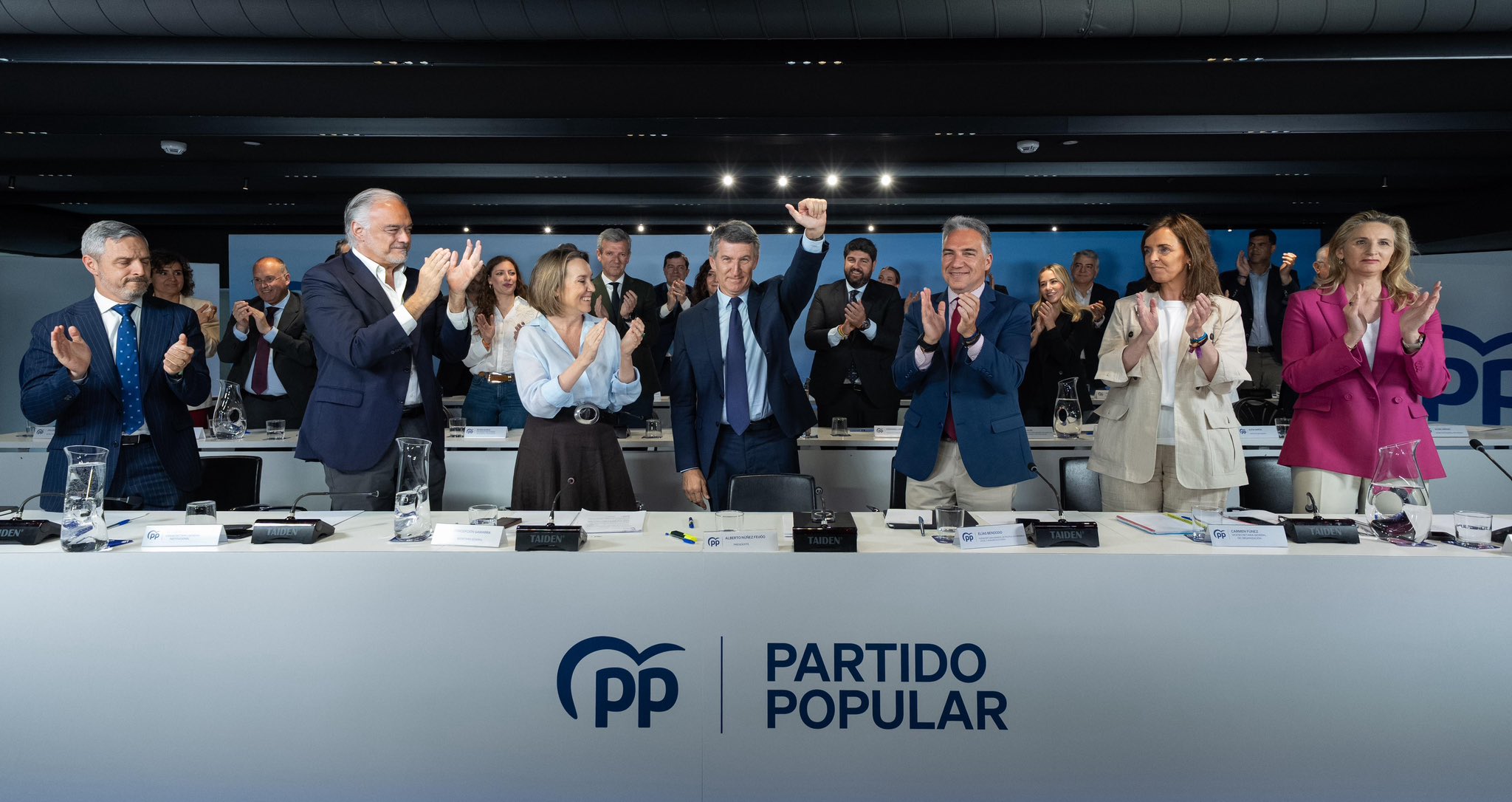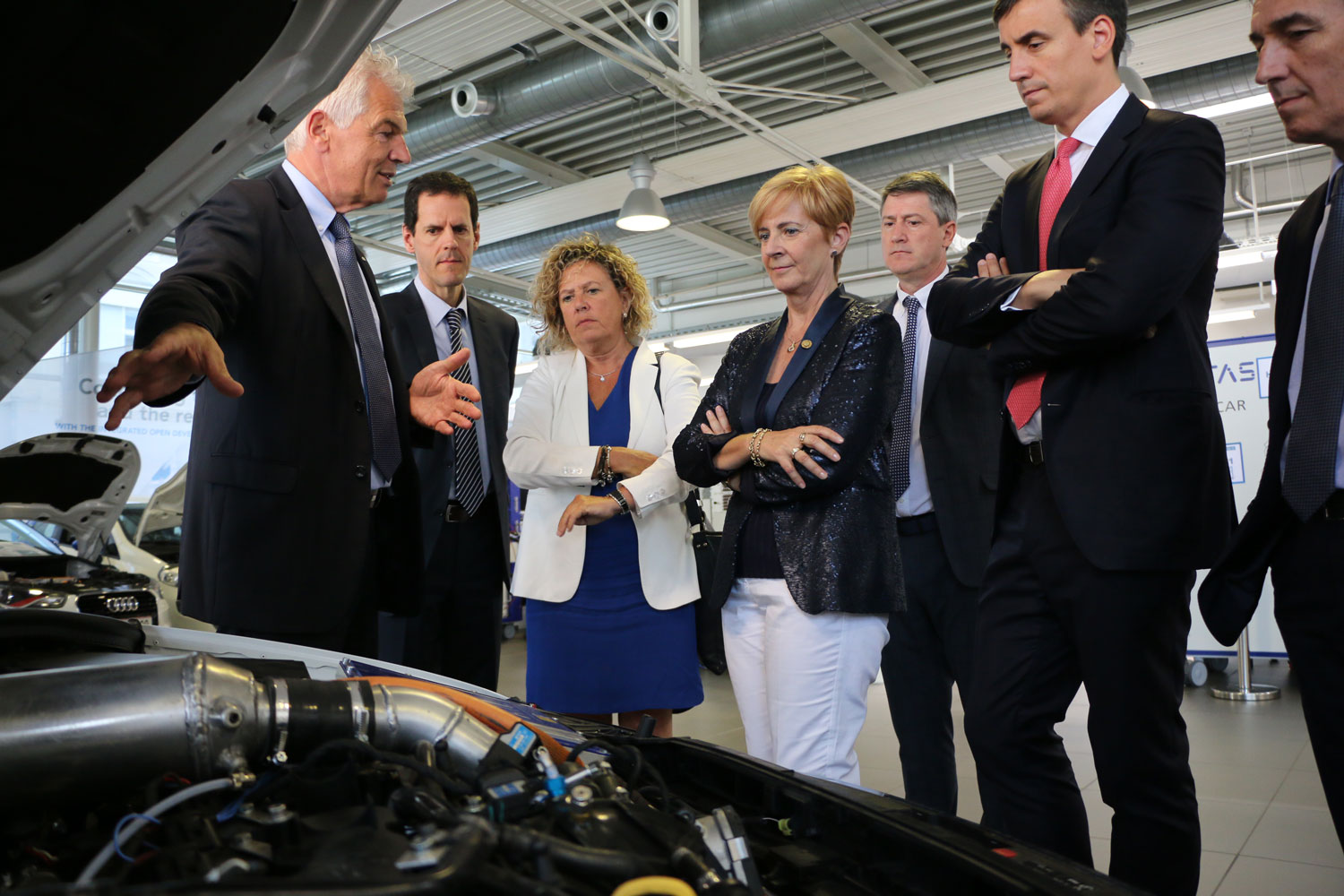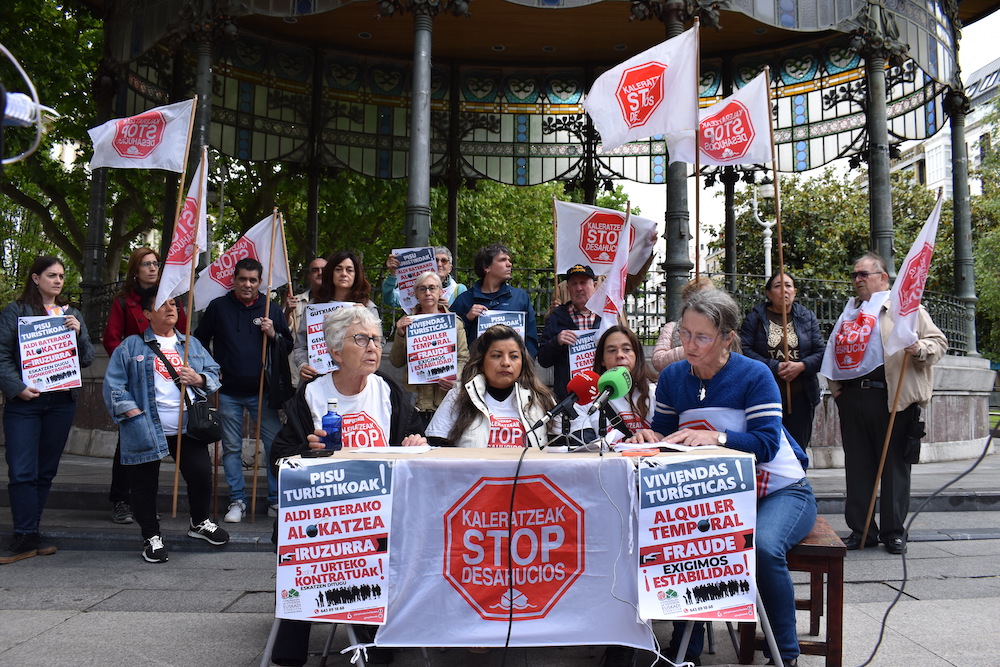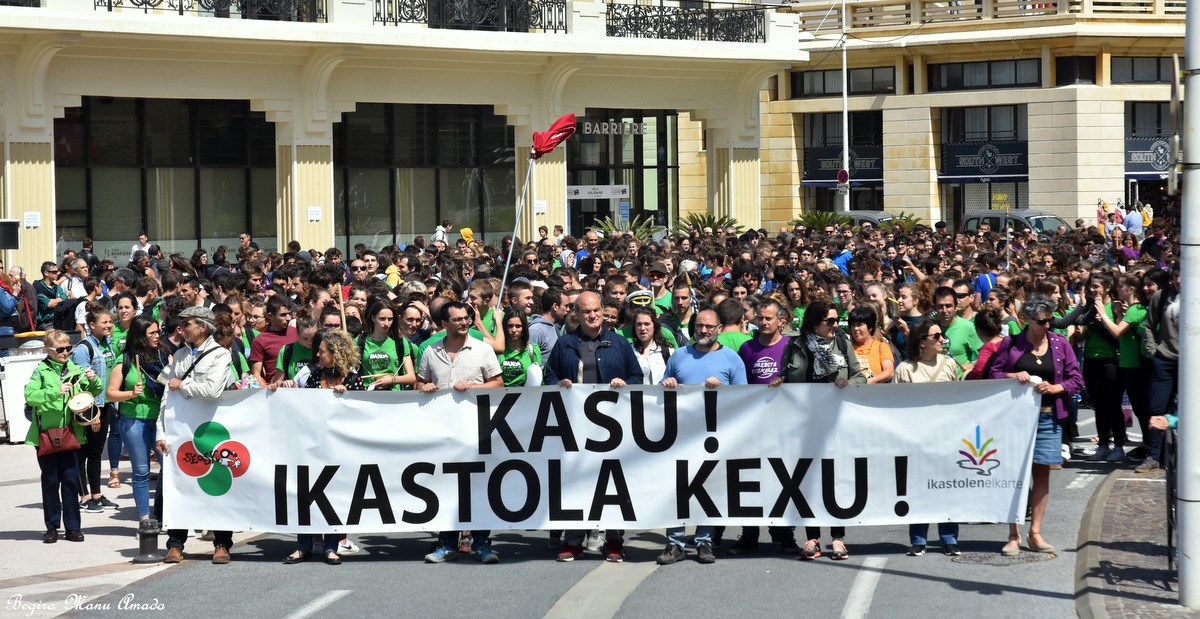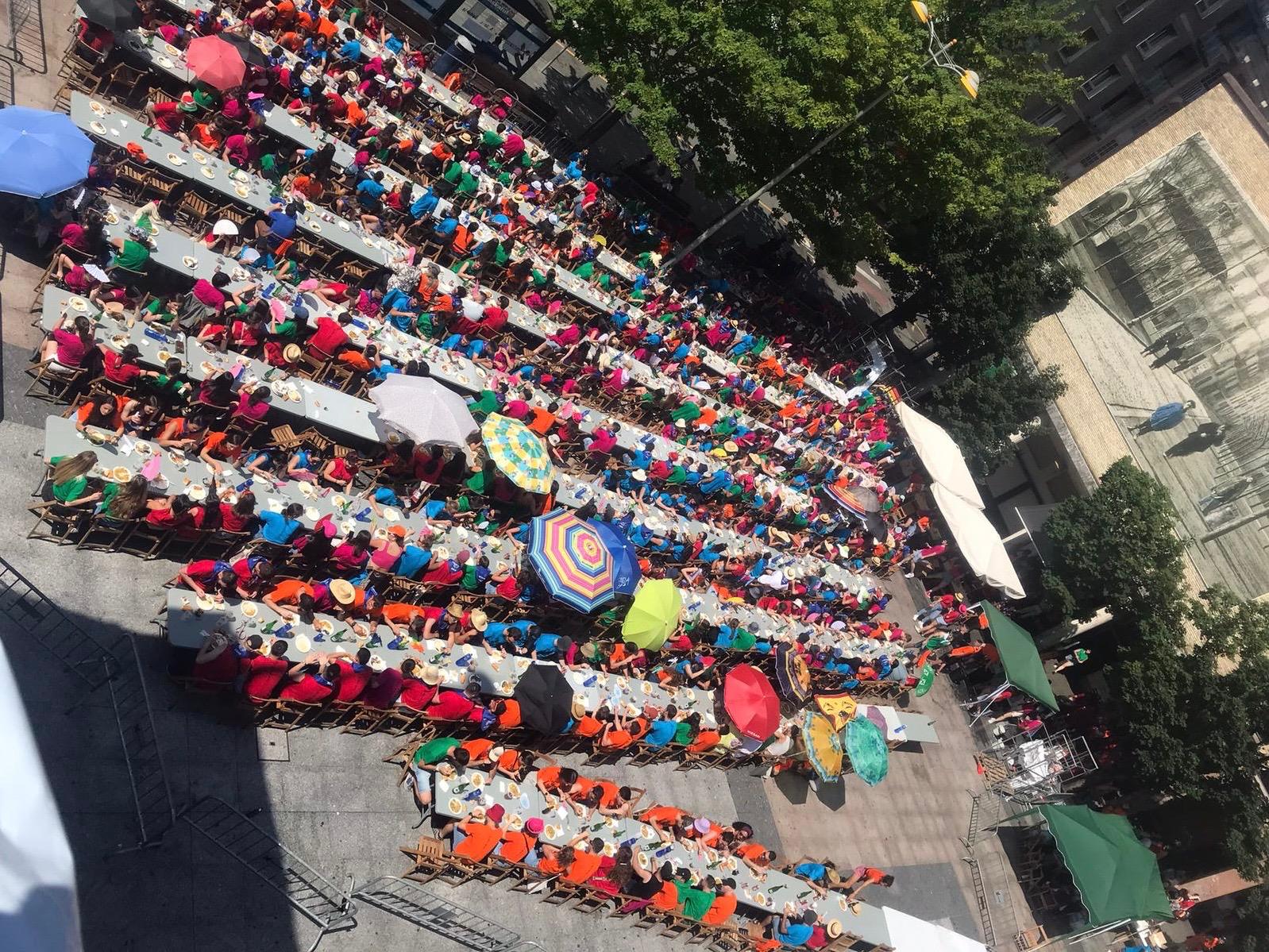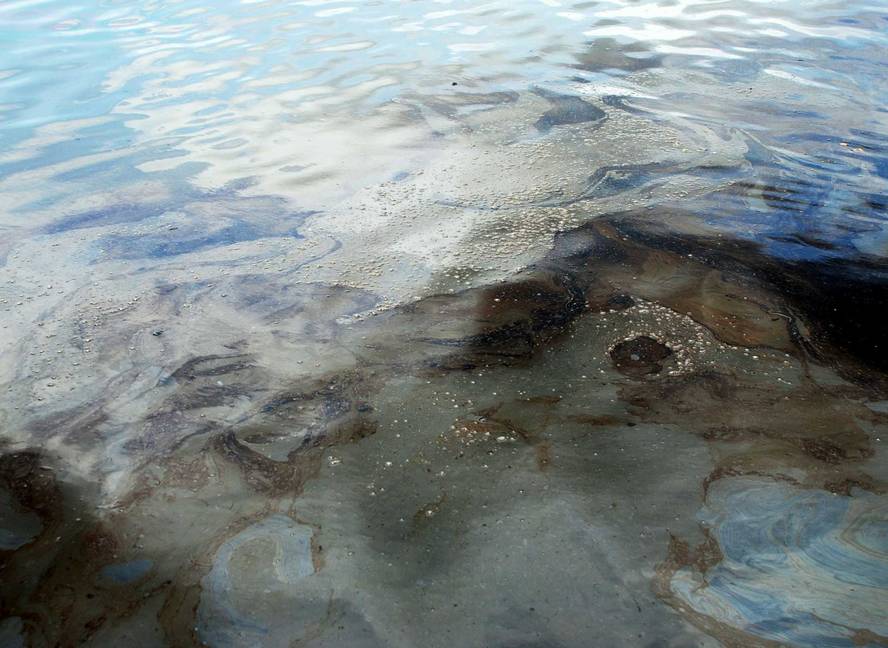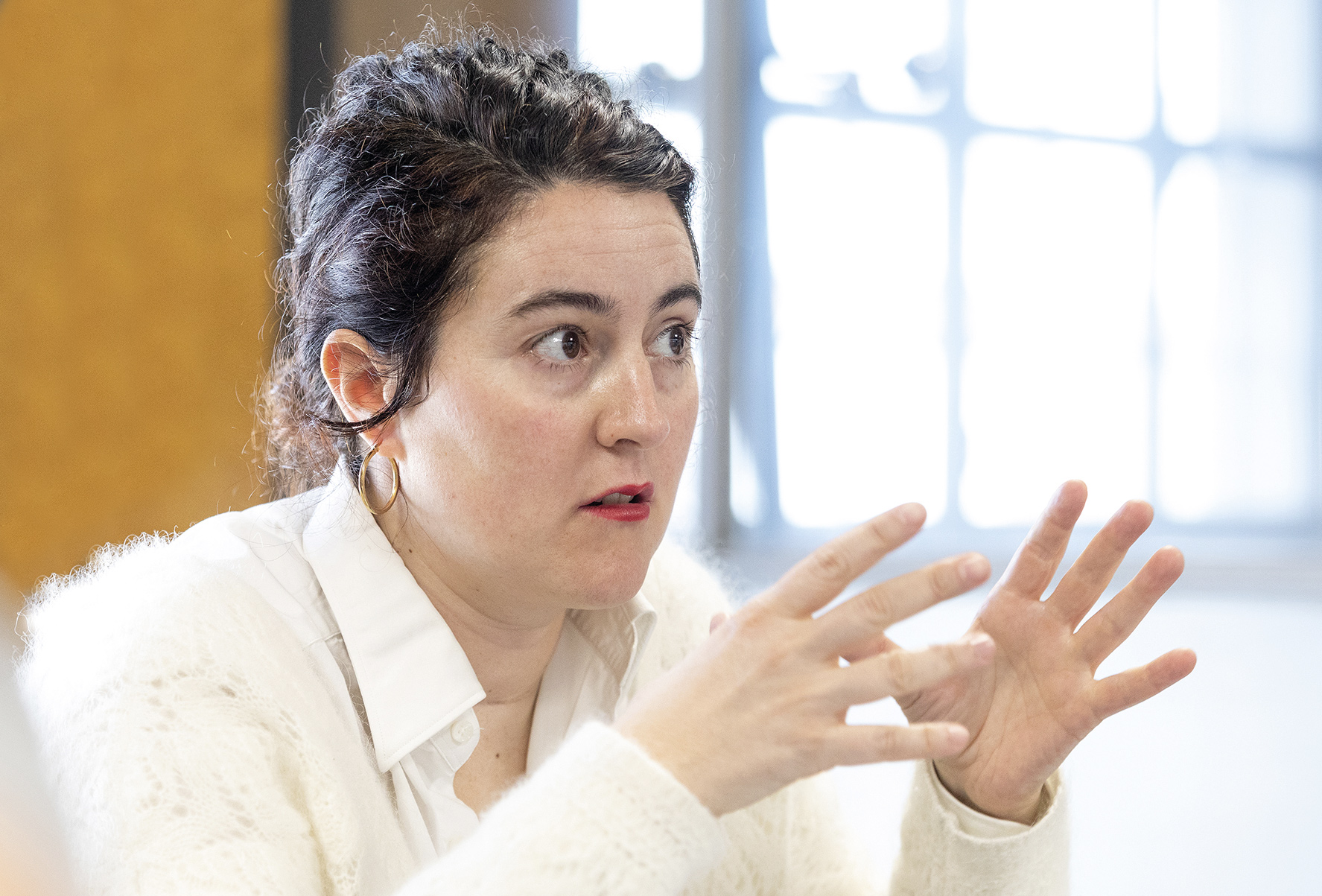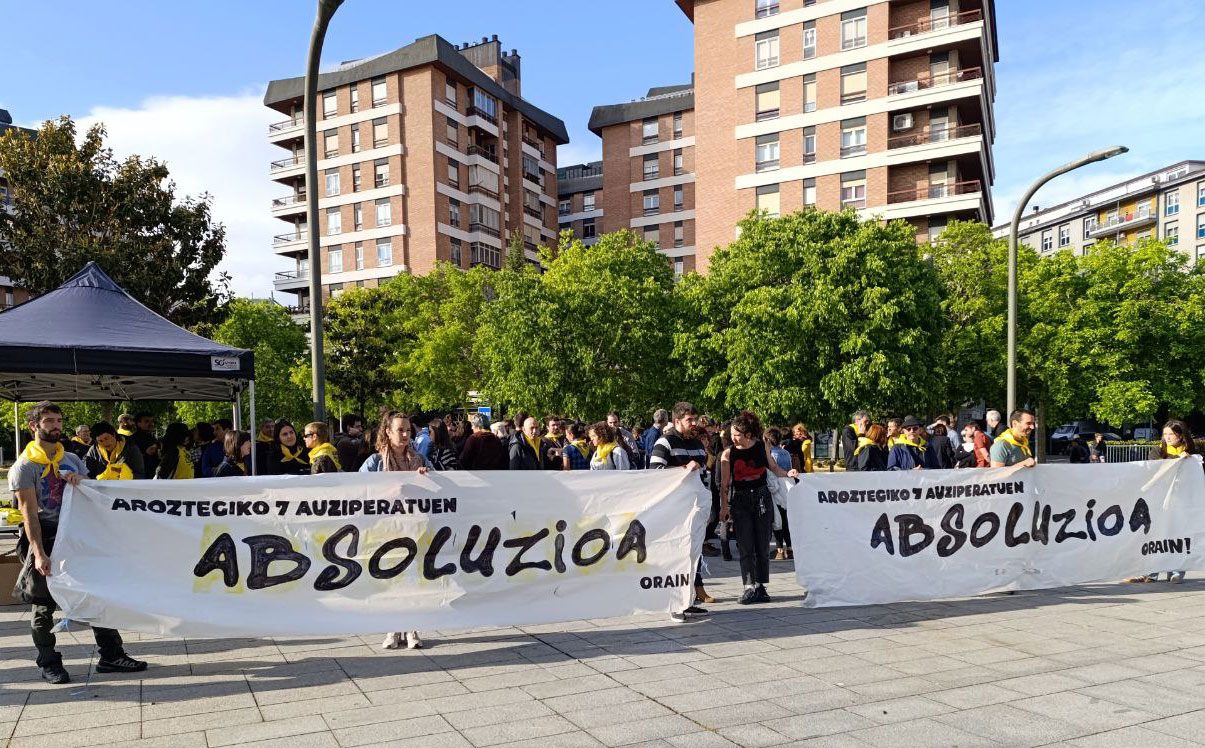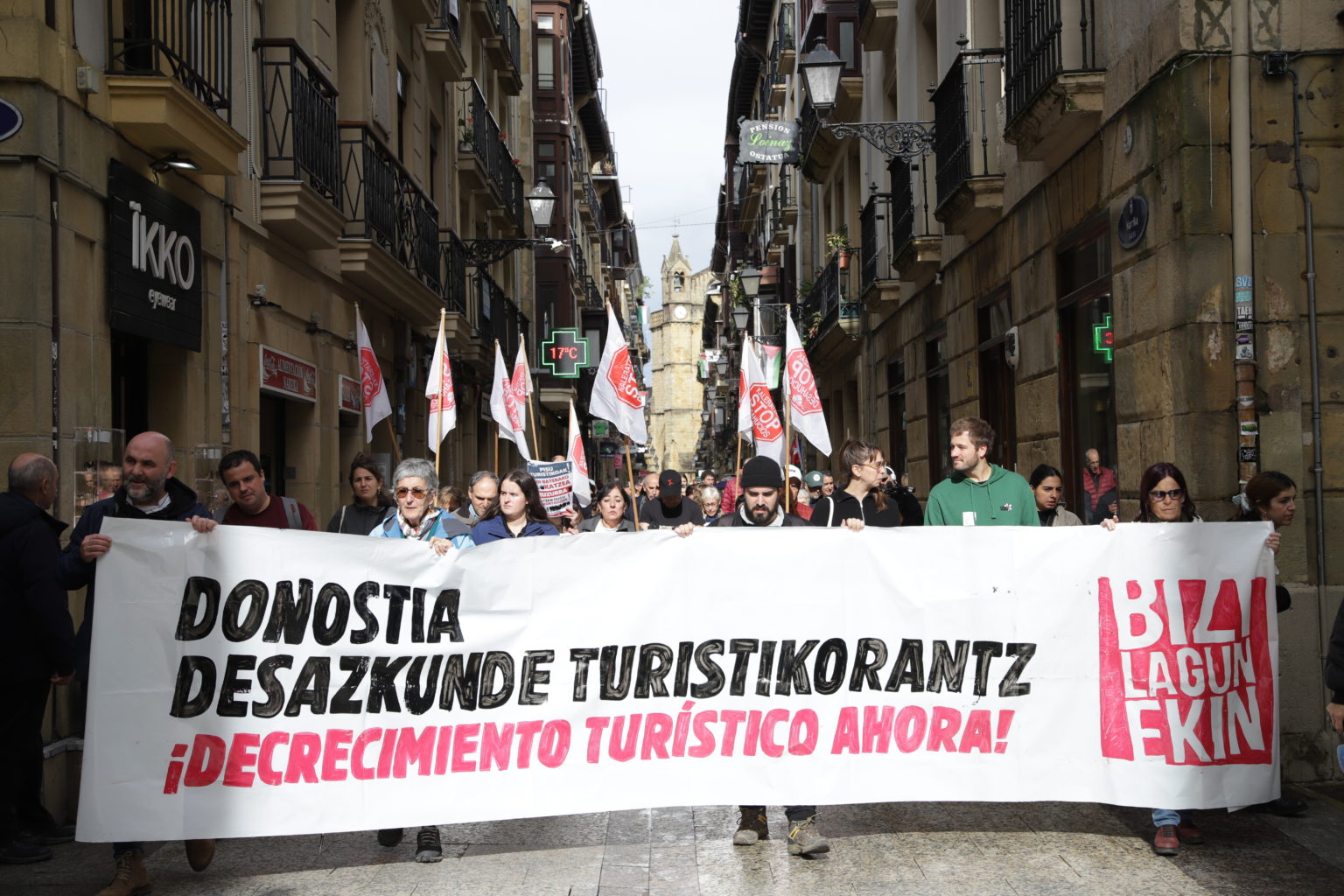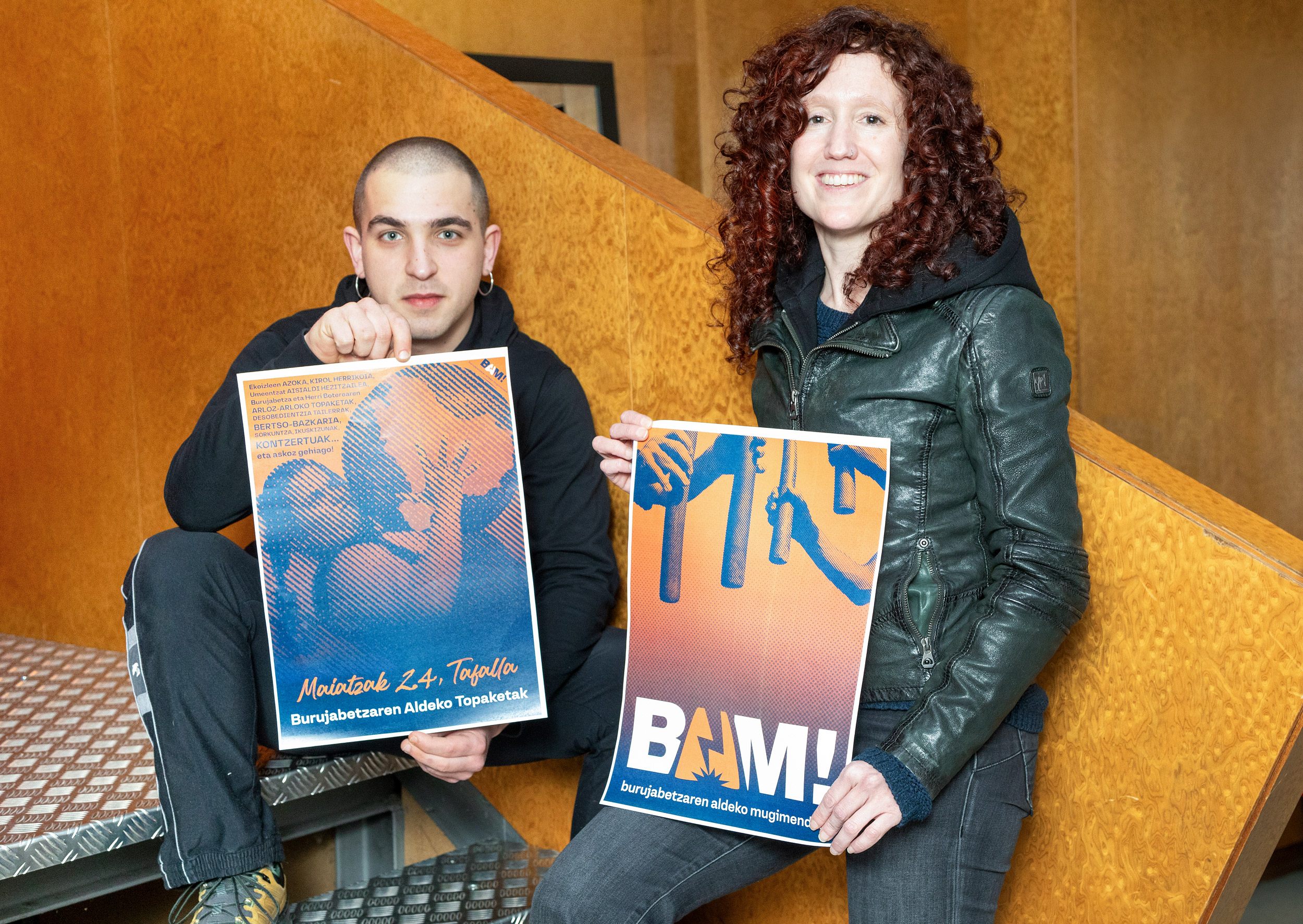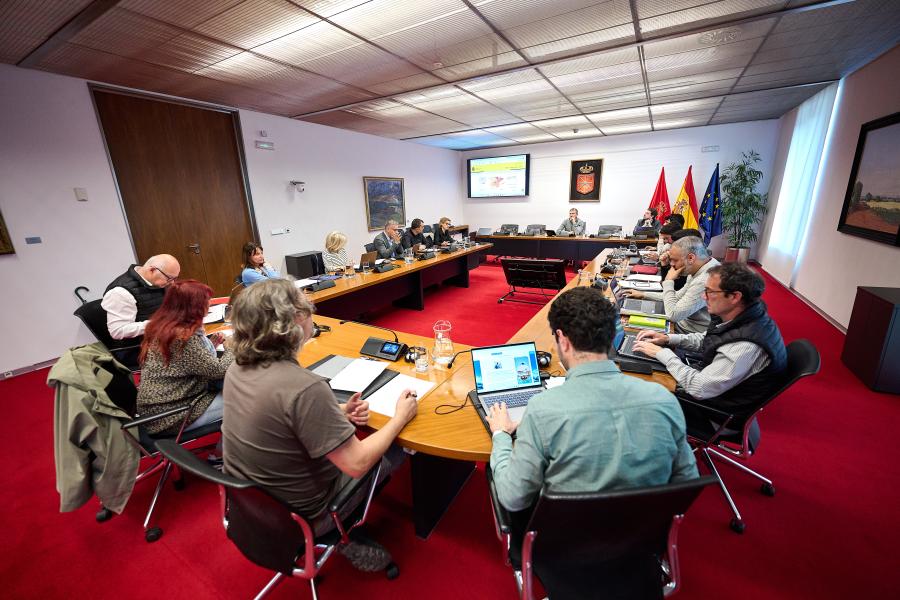"When they told me: "You're the boss," I've given you back that responsibility."
- Within the framework of the Olatukoop network, Iraqi associations Hiritik At, Talaios and Pare are working on the creation of a labour cooperative for migrant women. In order to expand the information and debate, Olatukoop has organized a conference in which they have invited Mercè Panyella and Sandra Martínez Díaz, from the Catalan care cooperative Cuidem Lluçanes, to tell their experience.

When and how was the cooperative born and when are you now?
M. Panyella: We live in the Lluçanes region, which is very small: Thirteen villages spread over 400 square kilometres, with a total of 7,500 inhabitants. From the consortium a study was carried out and it was found that in the region there were many women working unemployed or in black, as well as that the population was aging and proposed the creation of a cooperative based on care and cleaning. That was almost two years ago.
S. Martínez: With the help of the Consortium, we were a group of ten people for nine months, and with the advice on the road, we created about a year ago a service cooperative. The Governing Council is composed of six persons and consists of seven workers, two of whom are members of the Governing Council (I am the coordinator, I am also going to clean it if necessary, and the President of the Council is a family worker). We do not charge anything for being a member of the Governing Council and each worker takes half a day, but on time can vary slightly the time and money depending on his needs and the hours he wants and can enter.
MP: The aim is for us all to be partners in the future, but to do so we must ensure a minimum of EUR 400 per month for each of us. For the time being, there are people who are engaged in work, others are members of the cooperative and others are socials but not socials.
MS: In fact, we also have the figure of consumer partners: it is the citizens of Lluçanes who pay a share of EUR 20 per month for wanting to receive a service, with a total of 180 members. Some of them receive our services, others have been done because they think they would like to receive them in the future and there are people who believe that they have been involved in the project.
The interviewees say that there is a great pedagogical work to be done, since those who dedicate themselves to care are accustomed to precariousness, "to receive orders and not to say anything, especially in migrant women".
The title of the days says: “Do we cooperate to take care of ourselves? Gender, care and migration”. Gender, custody and migration are linked together. Is that the case at home?
MS: Almost all of us are women, yes. We have one man in the Governing Council and another in the service we offer to help boys and girls to school, but in the other two services we have, in the cleaning and care tasks of the elderly, all the workers are women. And two of them are migrants.
MP: Care is a feminized work, that is not valued, that women have always done at home, or that is done in black.
We also linked precariousness and exploitation with care tasks. In view of this, what does the cooperative give them?
MP: To begin with, in our house care goes in two directions: the care of the person who receives the service and the care between the workers, taking into account the personal situation, the conciliation, the needs…
SM: That in what we do we feel recognized, respected and cared for by all the staff. And the cooperative also grants women workers rights that they would otherwise not have. On the other hand, internalizing the philosophy of the cooperative is not easy for everyone, because it is not people who come from the cooperative world and we have to do a lot of pedagogy. They are accustomed to precariousness, receiving orders and obeying them without checking, for them it is normal to work in black and gives them a lack of confidence in a project like ours. For example, we have encountered difficulties in changing labour relations, with hierarchies, especially in the case of migrant women: When I was told “you are the boss, you decide”, I returned that responsibility to them; “this service has come out, do you want to do it? I will not organize the work for you, you decide.” From time to time I work with them in the cleaning. After all, it is a relationship between equals, but some have found it difficult to understand it.
And have you managed to get those decisions and responsibilities taken by the workers?
MS: Yes. One of them, for example, has been offered another job, more hours and more money, and he said no, that he is so comfortable in this type of company. Now they get more involved, because they feel theirs, because they understand it's also theirs. There is a clear concern and responsibility that everything is going well.
The cooperative is therefore an instrument of empowerment.
MS: Totally. It's an objective that we have from the very beginning, and we also have teams to empower women who have experienced male violence. In fact, we want to expand the offer of services: groups to work on grief, Catalan courses for migrants…
MP: Always having as a starting point the care of people. At first, for example, we had in mind offering cleaning jobs in companies, and we tested it, but we saw that it wasn't in line with our philosophy, that we didn't want it. It's one thing to get into a house and clean that house full of life, to help those who can't do that work, and it's another thing to get into the coldness of a big company. We tested it and it didn't work, we cleaned it up in small businesses and small businesses, in family members yes.
If we became a big company, we would lose that close deal, and that's not what we want.
So, you prefer to speak from a young age.
MS: I think if we were to do big business, we would lose that close deal, and that's not what we want. We've had jobs in bigger cities, but it's not our idea. We are a cooperative tailored to the rural environment in which we live. In addition, when dealing with the client, it is also noted that we are rural, it is easy to enter the house of the neighbor and take good care of the relationships. We're still knocking on the door: we're visiting potential service consumers, we're going to talk to them. Assuming dependency is not easy, and in this rural area, landlord payers often find it harder to accept the aid. That work must also be done.
How do you understand custody?
MP: For us, it's something profound, that goes beyond caring for the person, and at the same time, we understand it in a simple way. The key is in the gaze, in how I look at the other, from the same child or an old man, to an equal, rather than a paralytic. Our view of the body is also important: how to treat a body from respect, how to clean it, our attitude towards the genitals (if I am not satisfied, I will inevitably transmit it)…
SM: Care is a great challenge of our time. Putting on the table old age, dependency, death… and talking about all that is also our goal. How do I want to age and die; when I become dependent, what path do I want to travel, because beyond finishing in the nursing home or being a migrant woman at home to take care of myself throughout the day, there are other alternatives.
What message do you want to convey to the people of Euskal Herria in your speech?
MP: That a care cooperative seeks a solution to some issues, but not all of them, because we will not be able to deal with many legal and political issues. However, it is better to go ahead in what we believe and, if necessary, from disobedience.
MS: There are obstacles and reality is frustrating on many occasions. I ended up crying in the Gestoria one day because you're full of good intentions and the system tramples at you often, but we're inventing safe paths to move on. It is true that day-to-day is a bit crazy, that we put everything together and do the puzzle well, and that keeping the closeness we seek also takes time; for example, the coordination work I do not do on paper, the workers we listen to each other, we discuss at each other’s house taking a coffee… but my passion is personal relationships. Without passion, we would not get into something like this.

231.000 panel jarriko dituzte, Arabako hego-mendebaldeko ehun hektareatan zehar: Armiñonen. EUskal Herriko bigarren eguzki parke handiena izango da.
PPk Senatuan proposatu du, gainera, euskal preso politikoek damua erakutsi behar izateko xantaia areagotzea.
Maiatzaren 22an EAEko Legebiltzarrak mila milioi euro zorpetzeko lege proiektua onartu du “zientzian, teknologian, enpresan eta industria sektorean eragiteko”. Naiz hedabideak jakitera eman duenez, Eusko Jaurlaritzak KPMG Asesores SL enpresari eskatu dio plana... [+]
Donostiako Parte Zaharreko maizter batek 11 hilabeterako alokairu kontratua bost urterako legezko kontratu bihurtzea lortu du.
Washingtonen Israelek duen enbaxadako bi langile tiroz hilda agertu eta gero egin ditu adierazpenak Netanyahuk. Israelgo Gobernuak zuzenean lotu ditu Washingtongo erasoak eta Europako zenbait gobernuburuk Gazako sarraskiaren aurka egindako adierazpenak.
Mireia Centeno Gutierrez psikopedagogoak haurren elikaduraren inguruko zenbait gako eman ditu; hala nola jatera behartzeak eta jakiak debekatzeak dituen ondorioak aipatu ditu.
The defendants testified on Thursday, and their statements could be summarized as follows: The citizens who gathered in the square of legumes or in the camping area decided collectively what to do, in general, to go to the field of the works and put them passively in... [+]









